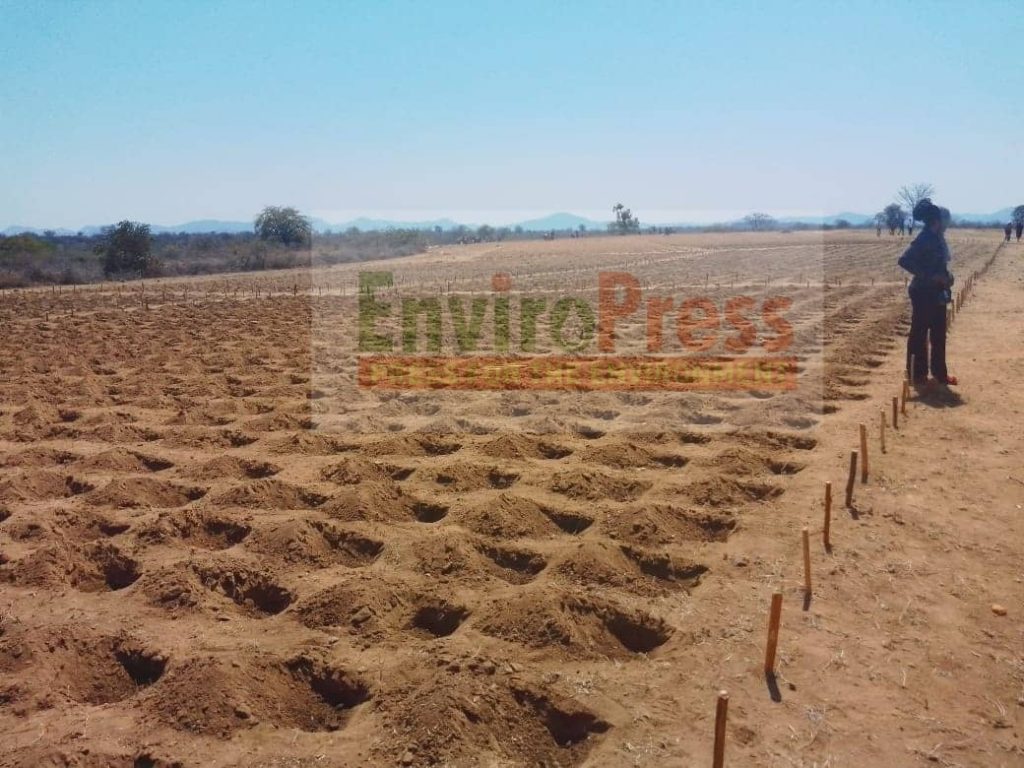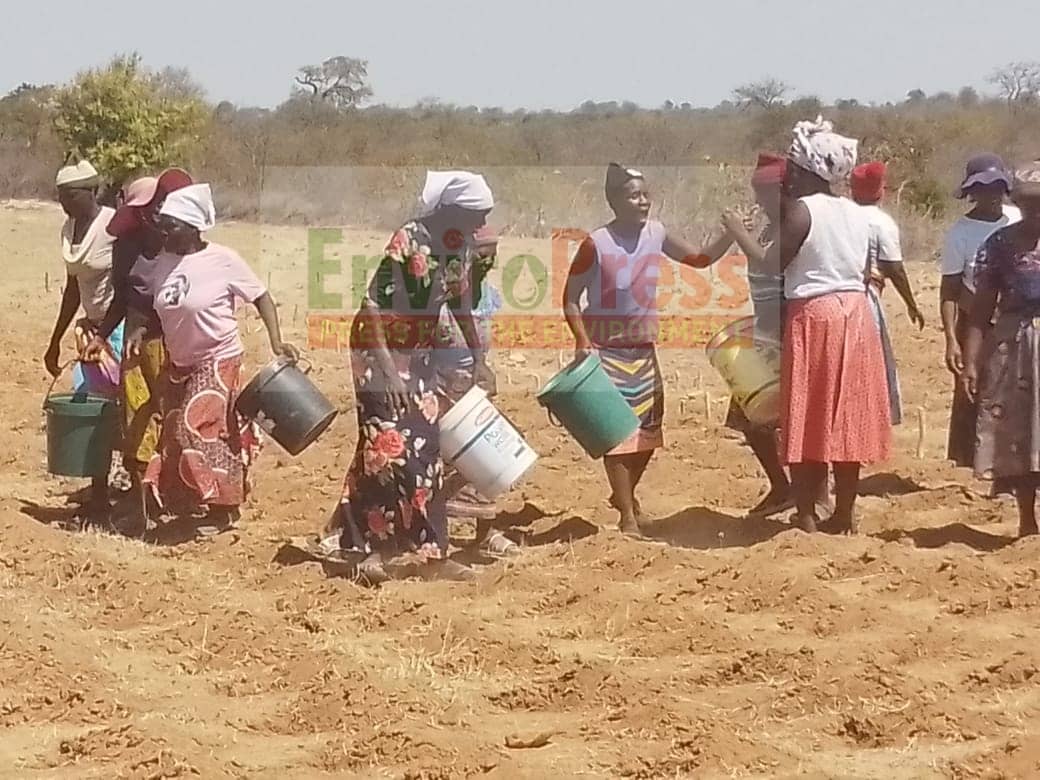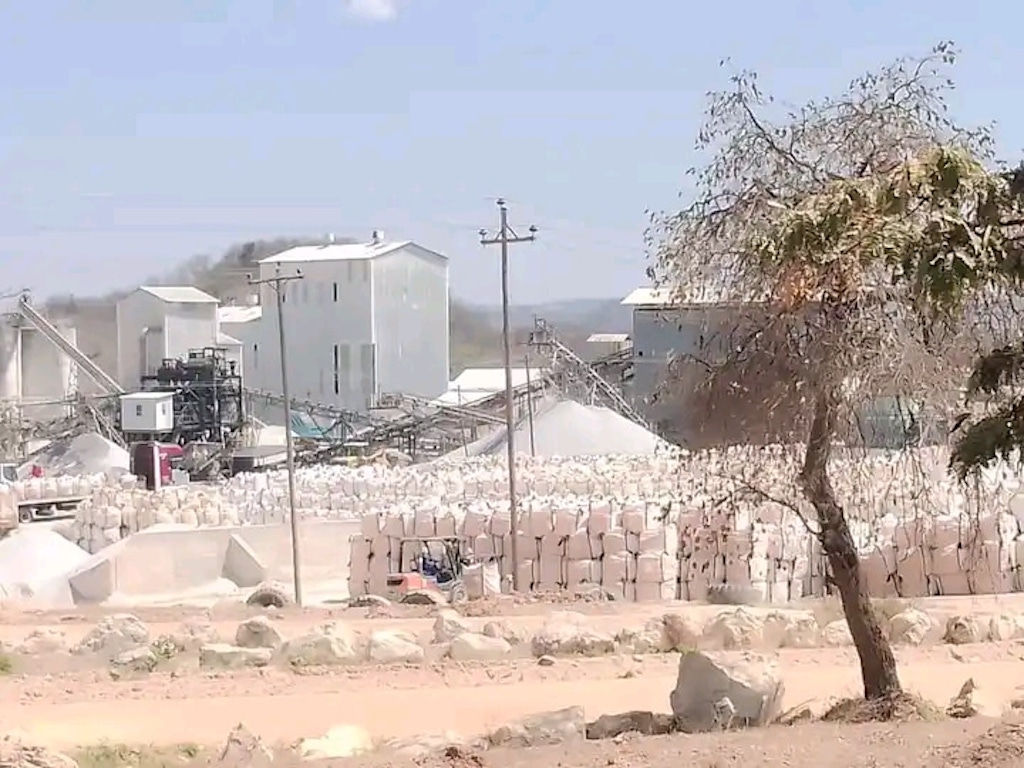Rutendo Chirume
Villagers in Chivi district are implementing a new farming technique called Pfumvudza Crocodile Model following advice by their local Agricultural Extension Officer.
The climate-proof model was formulated by Chivi District Extension Agritex Officer Forward Masara who touted it as suitable especially for semi-arid areas such as Chivi.
Speaking during a tour of Chief Chivi’s farm where a total of 90 villagers had gathered for Zunde raMambo, Masara said the model will lead to better harvests in drier conditions.
Villagers (pictured) worked on the chief’s one-hectare piece of land which was divided into 16 plots forming a crocodile shape.
“This new model will improve our yield and as such, we advise farmers across the country to adopt it to advance the goal of improved food security and nutrition.
“The crocodile, which depends on water for survival, represents humans as they too cannot survive without water. But unlike humans, a crocodile survives in water and even reproduces. Climate change is here to stay, but this model testifies to the possibilities of survival under the new normal.

“For example out of the 16 plots, crops are portioned to certain crocodile body parts. Four hectares of the crocodile tail are meant for sorghum, a highly-resilient crop under hot arid weather conditions, and this resembles the power of crocodile’s tail,” said Masara.
Chief Director of Agriculture and Rural Development Advisory Services (ARDAS) in the Ministry of Lands, Agriculture, Fisheries, Water and Rural Development, Leonard Munamati said the model should be adopted by the rest of the country.
“This is a new model of its kind and, therefore, we will make sure that it is adopted throughout the country for its potential to fight against the effects of climate change as we move towards our national goal of strengthening food security and nutrition,” said Munamati.
Generally, pfumvudza is a conservation farming method defined by zero tillage to conserve whatever little moisture in the soil. It has been encouraged by the government as a measure to address problems of low productivity, low production and low profitability of farming which continue to negatively affect the food security situation in the country.








